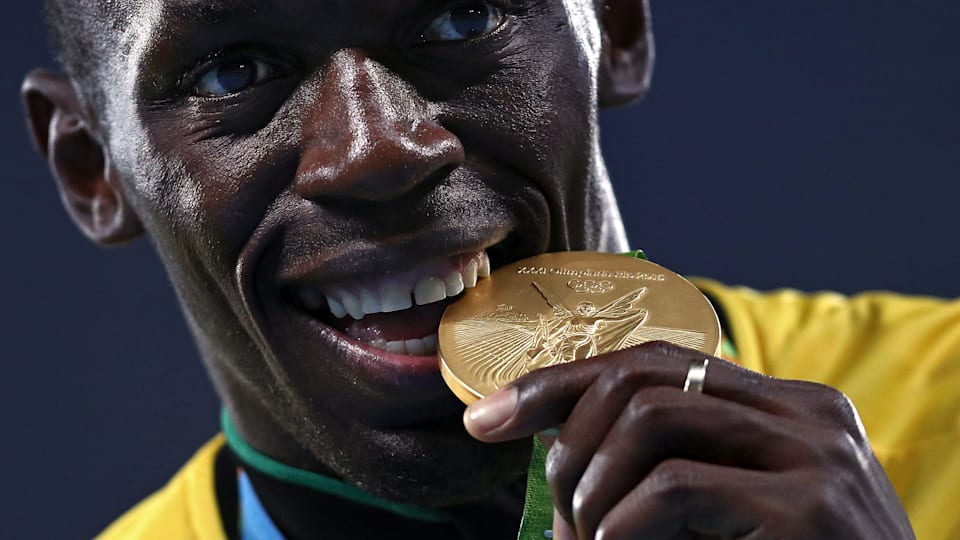Participating in the Olympic Games is a big achievement, but it comes with unique pressures and stress. Whether an athlete is swimming the breaststroke or competing in the modern pentathlon, psychology is crucial for their success or failure. Recent Olympics have shown the mental challenges of competing at the highest level. For example, US gymnast Simone Biles withdrew from several events at the 2020 Tokyo Olympics to protect her mental health, and swimmer Michael Phelps has talked about feeling down after the Games.
Source: Wikipedia
Full Story:
Small mistakes can cost a medal, so athletes use psychological techniques to stay focused and perform under pressure. One key element is resilience, which means bouncing back from setbacks like bad performances or injuries. Emotional regulation, which involves recognizing and controlling emotions like anxiety, helps athletes stay determined despite the global attention.
Resilience is not something you’re born with but develops over time through personal traits and support from others. A study in the UK in 2012 found that factors like having a positive personality, motivation, confidence, focus, and social support helped Olympic champions be more resilient and perform better.
Having social support means athletes don’t feel alone. Strong networks of family, friends, and coaches provide emotional strength and motivation. For example, a rower facing changing weather conditions needs resilience to stay calm and adjust their technique.
Staying present helps athletes avoid being overwhelmed by the importance of their event or distracted by past failures and high expectations. Techniques like mindfulness meditation, breathing exercises, and visualization help them stay calm and focused. Many athletes also have pre-performance routines, like a tennis player bouncing the ball a certain number of times before serving, to create a sense of normality and control.

Source: Paris 2024
Protecting mental well-being is also important. Failure can be hard, and even winning can lead to feelings of emptiness and loss of purpose, known as post-Olympic blues. Athletes need enough sleep and downtime to recharge mentally. A study in Australia in 2020 showed a link between mental well-being and better performance.
Athletes work with support staff like nutritionists and psychologists to handle challenges. Techniques like mindfulness and changing negative thoughts help with performance anxiety. Taking care of both the person and the athlete ensures the best performance during the Games and reduces post-Olympic blues.
Participating in the Olympic Games is a big achievement, but it comes with unique pressures and stress. Whether an athlete is swimming the breaststroke or competing in the modern pentathlon, psychology is crucial for their success or failure. Recent Olympics have shown the mental challenges of competing at the highest level. For example, US gymnast Simone Biles withdrew from several events at the 2020 Tokyo Olympics to protect her mental health, and swimmer Michael Phelps has talked about feeling down after the Games.
Small mistakes can cost a medal, so athletes use psychological techniques to stay focused and perform under pressure. One key element is resilience, which means bouncing back from setbacks like bad performances or injuries. Emotional regulation, which involves recognizing and controlling emotions like anxiety, helps athletes stay determined despite the global attention.
Resilience is not something you’re born with but develops over time through personal traits and support from others. A study in the UK in 2012 found that factors like having a positive personality, motivation, confidence, focus, and social support helped Olympic champions be more resilient and perform better.

Source: Paris 2024
Having social support means athletes don’t feel alone. Strong networks of family, friends, and coaches provide emotional strength and motivation. For example, a rower facing changing weather conditions needs resilience to stay calm and adjust their technique.
Staying present helps athletes avoid being overwhelmed by the importance of their event or distracted by past failures and high expectations. Techniques like mindfulness meditation, breathing exercises, and visualization help them stay calm and focused. Many athletes also have pre-performance routines, like a tennis player bouncing the ball a certain number of times before serving, to create a sense of normality and control.
Protecting mental well-being is also important. Failure can be hard, and even winning can lead to feelings of emptiness and loss of purpose, known as post-Olympic blues. Athletes need enough sleep and downtime to recharge mentally. A study in Australia in 2020 showed a link between mental well-being and better performance.
Athletes work with support staff like nutritionists and psychologists to handle challenges. Techniques like mindfulness and changing negative thoughts help with performance anxiety. Taking care of both the person and the athlete ensures the best performance during the Games and reduces post-Olympic blues.
This article is taken from “The Conversation” written by Jo Adetunji.
Read Also:
Neeraj Chopra Makes History As World Number One In Men’s Javelin | Olympic Champion Surpasses Rivals



















































































